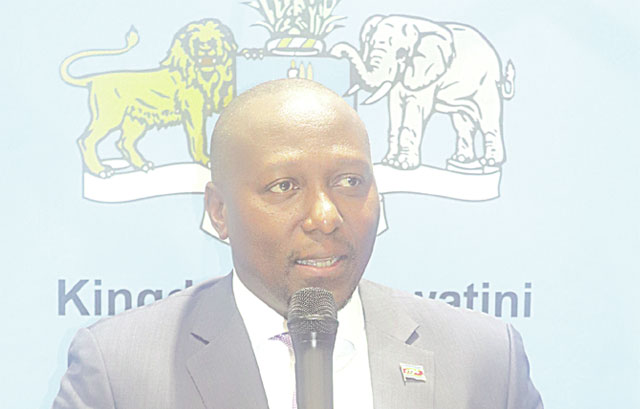By Zandisile Howe | 2022-09-25

Vulnerabilities of Eswatini to Climate Change
One aspect of climate change is the unpredictable weather pattern changes.
These are mostly caused by human’s unsustainable use of resources such as burning fossil fuels and emitting other greenhouse gases. Unfortunately, the poor countries of the world are hit the hardest by the effects of climate change.
A list of such countries is dominated by African countries. This is due to their ailing economies which result in poor infrastructure and poor services. Meanwhile these countries still need to heavily rely on economic activities that are said to be less friendly to the environment. For the Global South, where countries such as Eswatini are already facing some environmental challenges associated with climate change, it is important that strong policy frameworks and mitigation strategies are put in place.
Vulnerabilities with climate change
Eswatini, like many African countries, is a developing country. By extension, Eswatini relies on manufacturing and agriculture as main economic activities.
This is true for most developing countries, by the way. Such economic activities make the world to remain vulnerable to climate shocks. However, these are felt mostly in the African continent which continues to experience severe and multifaceted consequences of climate change. Such occurrences were predicted in the report of the Intergovernmental Panel on Climate Change (IPCC 2007), which states that Africa would be the most affected continent, as it would experience significant increases in temperature, particularly in the Sahel and part of Southern Africa (Nyawo, 2022). This effect was seen in El Nino in 2015 when Eswatini experienced a severe drought where by emergency support was needed. The El Niño-induced drought was declared a national disaster, causing serious implications for approximately 35 000 households who were not be able to afford inputs for planting, as well as many other farmers who experienced a drastic decline in harvest, majority being in the shiselweni and lubombo region (FAO, 2019). Ramdeen, M (2020) states that 63% of the population in Eswatini live below the national poverty line.
This statistic shows that the economic vulnerability of the country was worsened with the impacts climate change, leaving behind food scarcity in many homes.
The capital city of the country, which is Mbabane, was not spared from the El Nino effects. The Hawane dam which is the main source of water to the city, had the lowest water volume in a very long time. This forced the city to find alternatives to water supply which included water rationing. Thus many homes in the city experienced interrupted water supply at some point up to four times a week. People in the city could not do their backyard gardens or small subsistence farming activities at that. This vulnerability exposed by the climate hazard which is drought in the kingdom Eswatini. This extended beyond the city centres and had major impacts in agricultural and water supply sectors in the country.
We had to rely on assistance from development partners such as the Food and Agriculture Organization of the United Nations and other countries such as Taiwan.
Another effect of climate change is heat waves. This has an effect on the agricultural sector as well as health. In terms of health anecdotal evidence in Eswatini shows that there is an increase in deaths due to heat stress related disease and extreme events which include lightning, snake bites, drowning and heatstroke’s (Government of Eswatini, 2021). The environmental challenges the country faces with the heat waves is that a lot evaporation occurs and in the process lots of vegetation die, which leads to soils being exposed. Exposed soil is vulnerable to the harsh weather conditions that come with climate change. This then leads to soil erosion.
The end result of which includes dongas in the landscape which can be seen in some parts of the country such as Nyatsini where Minister Vilakati was participating in a community project that was rehabilitating the land.
Extreme weather events such as heavy rainfall, can be seen to lead to flooding, which can be seen in urban areas such as Mbabane and Matsapha. On February 6 2020, Mbabane residents in the Kingdom of Eswatini experienced unprecedented flash floods which wreaked havoc in the city, flooding the Plaza, The New Mall and the Industrial Area (Pullanikkatil, 2020). Supermarkets and shops experienced losses when their products got soaked wet. The electricity supply in the city was also affected as trees fell and several electric poles were damaged. This called for the Eswatini Electricity Company to work tirelessly to restore power to the affected residents of Mbabane.
A further vulnerability of Eswatini is that the country depends on ecosystem services such as soil quality and water access.
Traditional healers depend on traditional medicine availability which is found in indigenous forests which have slowly been declining over the years due to invasive species, droughts as well as deforestation. Dispersal patterns of some species have been affected due to wild fires that have increased across the country and predictions show frequency of high fire-danger days is projected to increase across Eswatini, with high fire risks projected in the Highveld, which is endowed with forest plantations and grasslands (Government of Eswatini, 2021).
Policies
With the prevailing effects of climate change in Eswatini, policies need to be implemented that will protect and help mitigate the effects of climate change.
A policy directive that can be implemented is that the country should set local emission goals with the aim for carbon neutrality (Buckland & Robinson, 2019). The country should also divert away from endorsing unsustainable industrialisation. Large scale manufacturing factories have been seen to leave a large carbon footprint in the environment and are not good for the health of the workers in developing countries.
An additional policy idea is that there should be practical measures of integration of climate change adaptation measures into national development planning and building. Ministries, NGOs and the private sector need to come together and help fight climate change.
There should be programs created in each sector that strengthen legal protection and not just word of mouth frameworks that stand for climate change. Skills development on climate change adaptation should be implemented in schools so that eventually there is a whole generation of Swazis who know and practice good climate friendly behaviors.
More people should have access to climate change assistance finance, more environmental friendly businesses should be encouraged amongst the youth that will help build job opportunities and training should be done across all regions on climate emergency proposals.________
Zandisile Howe is a final year student at UNESWA
share story
Post Your Comments Below

Former Zambia president, Edgar Lungu, says the ICIJ report, ‘Swazi Secrets’ is based ...

Prime Minister, Russell Dlamini, has maintained that government jobs are not a privilege, saying ...

SOCCER - ARE they a target for being trendsetters?
Following the movie-like scene, where ...

OVER 50 young people attended the life-changing seminar hosted by Semusa Networks on Saturday.
All material © Swazi Observer. Material may not be published or reproduced in any form without prior written permission.
Design by Real Image Internet